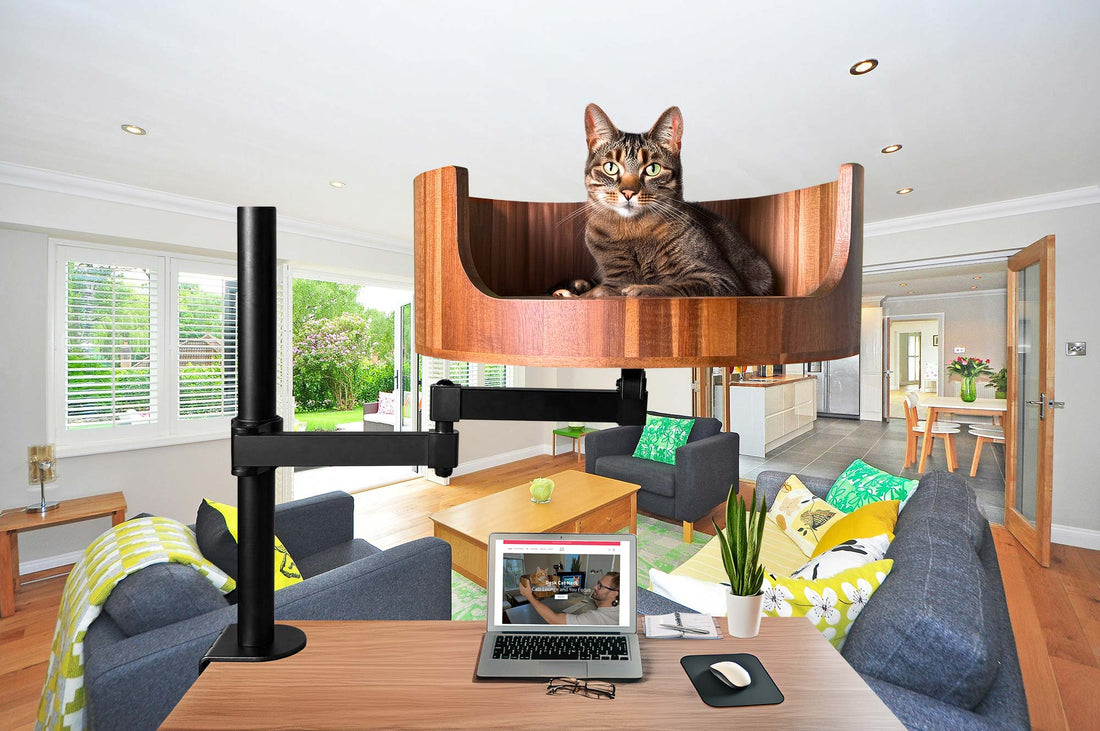
Why Does My Cat Keep Meowing at 3am? Understanding Behavior
Share
If you are a cat owner, you have likely experienced the frustration of being woken up by your feline friend in the middle of the night for seemingly no reason. The incessant meowing at 3am can be incredibly disruptive to your sleep and leave you wondering why your cat behaves this way. In this article, we will delve into the reasons behind why cats meow at night and how you can address this behavior effectively.
One common motivation for nighttime meowing is a cat's natural instinct to hunt and be active during the night. Cats are crepuscular creatures, meaning they are most active during dawn and dusk. When your cat is meowing at 3am, it may be seeking attention, food, or playtime as it would in the wild. Additionally, meowing at night can be a sign of stress, anxiety, or illness in your cat. By understanding the reasons behind this behavior, you can take steps to address it and ensure a peaceful night's sleep for both you and your furry friend.
1. Cats may meow at 3am due to their natural hunting instincts, seeking attention, or responding to their surroundings.
2. Some cats may meow at night as a way to communicate their needs or desires, such as hunger or discomfort.
3. Providing a comfortable sleeping area, regular playtime, and a consistent feeding schedule can help reduce nighttime meowing.
4. Understanding your cat's individual behavior and addressing any underlying health issues can also help curb excessive meowing.
5. Consulting with a veterinarian or animal behaviorist can provide tailored solutions for managing your cat's nighttime meowing.
Causes of Nighttime Meowing
Nighttime meowing in cats can be caused by a variety of factors. One common reason is simply boredom or excess energy. Cats are known for being most active during the night, so if your feline friend is cooped up inside all day, they may be looking for ways to expend their energy when you're trying to sleep. Health issues such as hyperthyroidism or cognitive dysfunction can also cause cats to exhibit this behavior. Additionally, cats may meow at night if they are hungry, thirsty, or seeking attention.
Strategies to Address Nighttime Meowing
If your cat's nighttime meowing is disrupting your sleep, there are several strategies you can try to address the behavior. One effective approach is to provide your cat with ample stimulation and exercise during the day. This can be achieved through interactive play sessions, puzzle toys, or even a cat tree for climbing and scratching. Feeding your cat a larger meal before bed can also help prevent them from waking you up due to hunger. Additionally, creating a calming bedtime routine for your cat, such as interactive play followed by a quiet period, can help signal to your feline friend that it's time to settle down for the night.
When to Seek Professional Help
In some cases, nighttime meowing in cats can be a sign of an underlying health issue or behavioral problem that requires professional intervention. If your cat's meowing at night is accompanied by other concerning symptoms, such as changes in appetite or litter box habits, it's important to consult with your veterinarian. A thorough physical exam and possibly diagnostic tests can help determine the root cause of the behavior and guide appropriate treatment. Additionally, a certified animal behaviorist can provide guidance on how to modify your cat's behavior through positive reinforcement techniques. Remember, addressing nighttime meowing in cats requires patience and consistency, but with the right approach, you and your feline friend can both enjoy a peaceful night's sleep.
Desk Cat Nest FAQ
Why does my cat keep meowing at 3am?
There could be several reasons why your cat is meowing at 3am. It could be due to hunger, discomfort, boredom, or a desire for attention. Cats are naturally more active during the night, so they may be seeking interaction or playtime.
Will a Desk Cat Nest help reduce my cat's nighttime meowing?
A Desk Cat Nest can provide your cat with a cozy and comfortable space to rest during the night, which may help alleviate some of their nighttime meowing. Additionally, having a designated sleeping area can establish a routine for your cat, potentially reducing their desire to meow for attention.
How can I encourage my cat to use the Desk Cat Nest?
You can encourage your cat to use the Desk Cat Nest by placing their favorite toys or blankets inside, and offering treats or catnip as positive reinforcement. It may take some time for your cat to adjust to the new sleeping space, so be patient and consistent in your efforts.
Are Desk Cat Nests suitable for all cat breeds and sizes?
Desk Cat Nests come in various sizes to accommodate different cat breeds and sizes. Make sure to choose a Nest that is spacious enough for your cat to comfortably stretch out and move around in. If you have a particularly large cat, consider opting for a larger size or alternative sleeping option.
In conclusion, if you are struggling with your cat meowing at 3am, investing in a Desk Cat Bed can greatly improve the situation. Not only does the bed provide a comfortable and cozy space for your cat to sleep in, but it also helps create a sense of security and familiarity for your pet. By encouraging better sleep habits, the Desk Cat Bed can ultimately lead to less nighttime meowing and a more peaceful night's rest for both you and your feline companion. With its numerous benefits and value, the Desk Cat Bed is a great choice for addressing the issue of why your cat keeps meowing at 3am.



















































